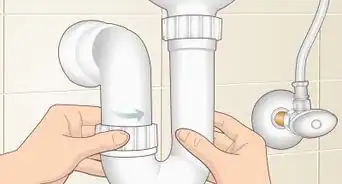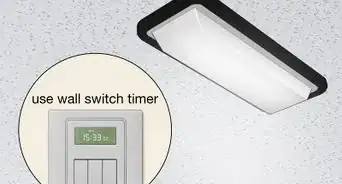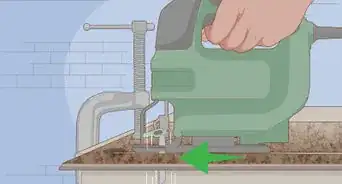This article is based on an expert interview with Art Fricke, conducted by wikiHow Staff Editors. Art Fricke is a home renovation and repair specialist and the owner of Art Tile & Renovation based in Austin, Texas. With over 10 years of experience, he specializes in bathroom and kitchen renovations. Art focuses on a single contractor approach to customized renovation work, and performs projects such as installing custom tile showers, fixing tiled shower leaks, replacing cracked tiles, and installing floor and wall tile.
This article has been viewed 1,294 times.
Navigating the world of building permits when you’re remodeling your home can feel really complex, but it’s super important that you get a permit when one is required. If you don’t, you could actually end up having to undo all of your hard work. But how do you know when a permit is required and when it’s not? Don’t worry—in this video, home renovation and repair specialist Art Fricke has the answers.
Key Takeaways
- Whether you need a building permit for your project depends on your city and state regulations.
- In some places, like the state of Texas, you don’t need a building permit if you’re doing the work yourself, although that’s not the case in most cities and states.
- Always get a building permit if it’s required—if you don’t, you could end up having to undo all of your work if you ever try to sell your home.
Video Transcript
The answer to this is that it really depends. For example, I'm in Austin, Texas, and the reason why I can work as a general remodeling contractor and also do a lot of the work myself is because I work as sort of a personal agent of each particular client. It's also why I only do one project at a time and do most of the work myself, because in Texas, there's an exemption to any sort of permitting, which is called a homeowner's exemption. The idea is that, if you are a homeowner in Texas and you want to work on your own house, you can do anything you want, as long as you do the work yourself or with a friend or someone that you have a personal relationship with. Basically, if you're involved in doing the work as a homeowner in Texas, you can knock yourself out, you can even do your own plumbing and electrical work in Texas, if you want to. Now that's really unusual. That usually doesn't apply to other states or other cities or towns. So it really depends on what your state regulations are and what your county regulations might be. But generally, it's a city or state regulatory thing as to whether you need a permit or not. And it's very important—if you're going to go down the conventional renovation road of not doing the work yourself but getting someone else to do it—that you make sure you know what the permitting regulations are in your city and in your state. Because, worst-case scenario, let’s say I renovate my house and I add a bathroom, which really stands out when you go to sell your house because you bought the house as a two-bathroom house, and now you're selling it as a three-bathroom house. The realtor is going to notice that. That's going to attract attention. And that's going to need to be permitted for the house to be sold after the renovation. And if you did unpermitted work, and you live in someplace where permits are mandatory for renovation work, like adding a bathroom with electrical, plumbing, structural, etc, then it could be a worst-case scenario of having to literally rip apart and undo the work that you previously did so that you can show your city inspectors that the work was actually done correctly. So know the permit situation that applies to you before you start a big project like a full bathroom remodel or a full kitchen remodel. Otherwise, you could end up in a situation where you have to rip it all apart again and do it all over in order to sell your house. Sometimes electrical and plumbing needs to be inspected before it gets covered up with drywall, but in other places, like California, for example, even things like carpentry and finished work needs to be inspected before it's all signed off on.

























































